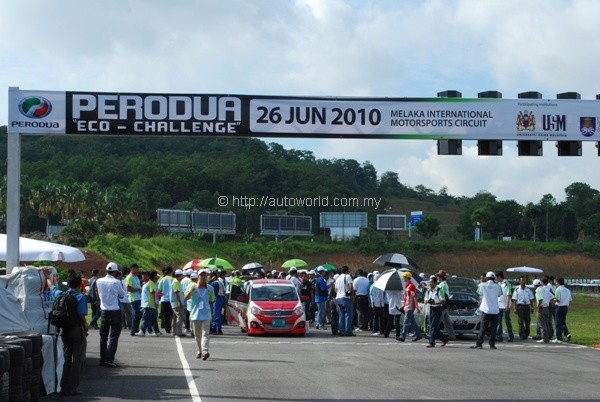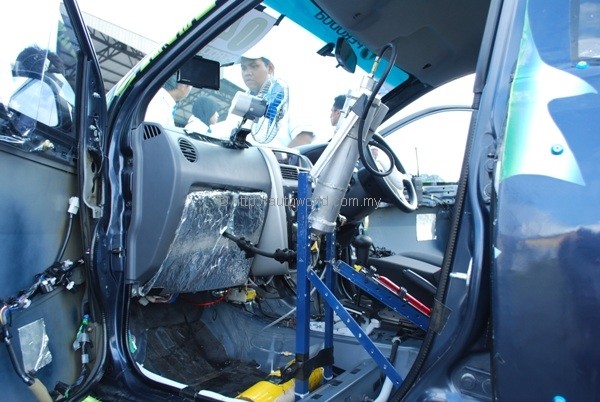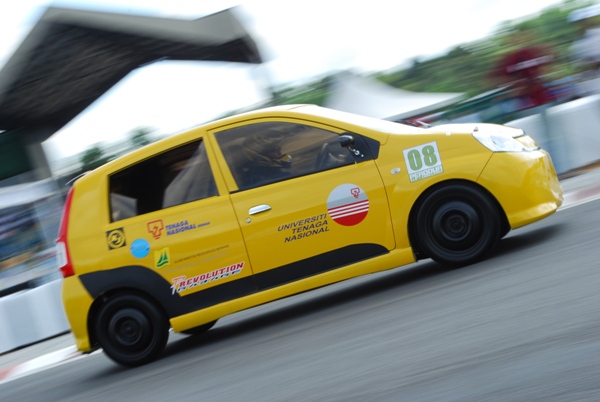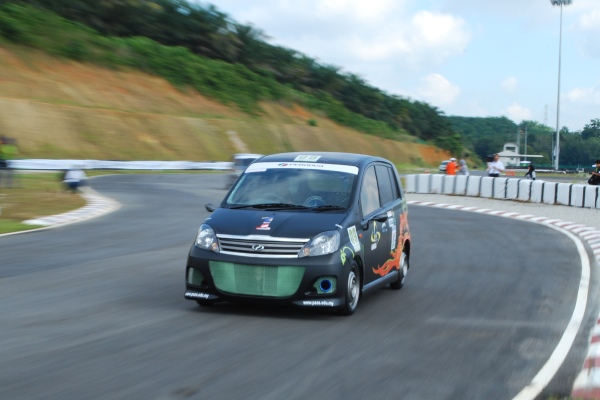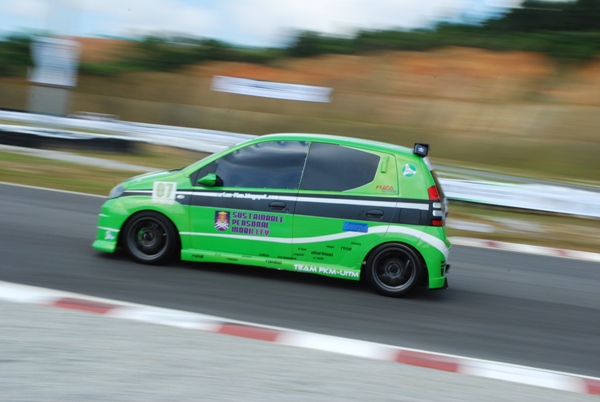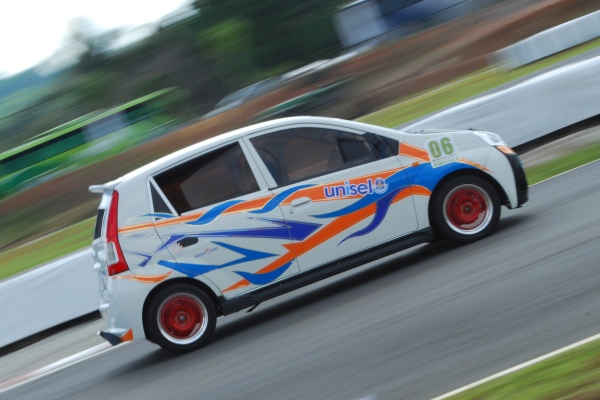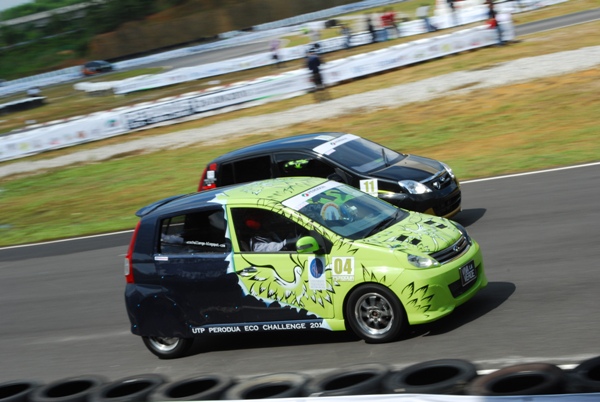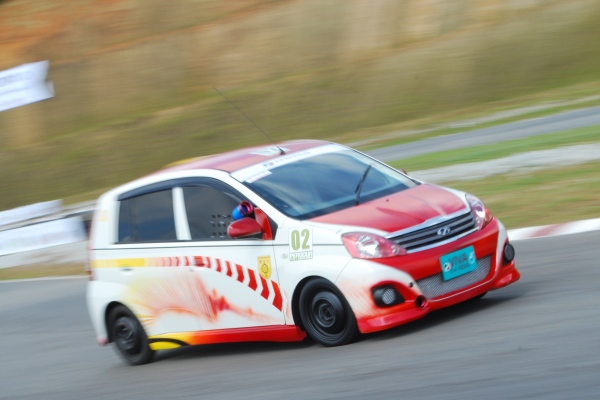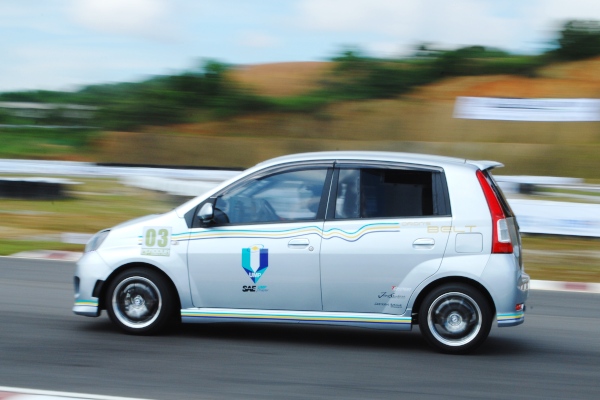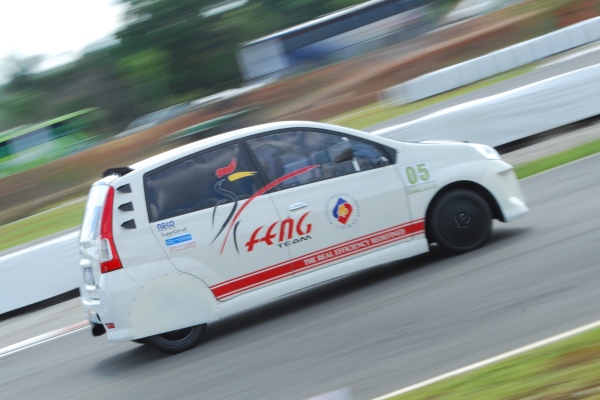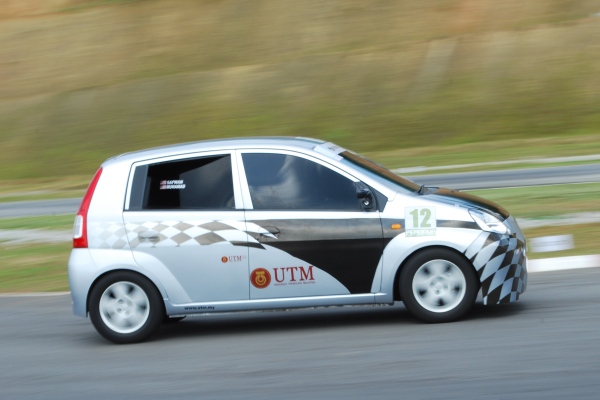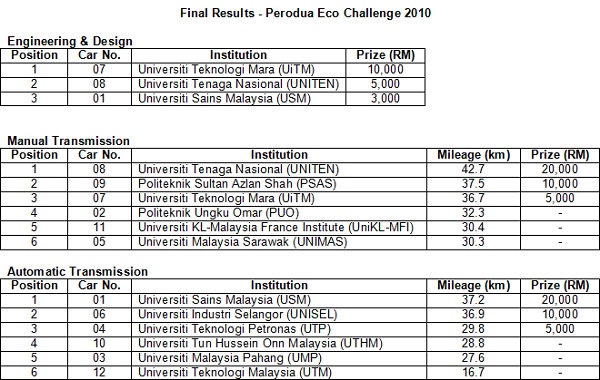UNITEN, USM shine in Perodua Eco-Challenge 2010
In February, we told you that Perodua handed a Viva each to a total of 12 local institutions of higher learning for the Perodua Eco-Challenge 2010 in Malacca. Yesterday, we were present to witness the culmination of their hard work at the Melaka International Motorsports Circuit (MIMC).
The inaugural edition of the Perodua Eco-Challenge was held on 20 June 2009 in Sepang, and the success of that event spurred Perodua to repeat the effort this year. A total of 27 submissions were received from institutions nationwide, up from 21 received in 2009.
After being given their cars, the twelve institutions were then split into two categories of six teams each based on the transmissions of their respective vehicles – manual and automatic transmission.
Being an engineering project, the institutions were allowed to perform extensive engine modifications, although the original engine block, cylinder head and transmission must be retained. Weight stripping measures were permitted, but the must weigh a minimum of 650kg. Cars stripped to below this weight are required to strap on weight ballasts to bring them back up to the minimum required weight.
The final challenge, a ‘race day’ of sorts, sees the 12 cars flagged off at the aforementioned MIMC go-kart track. The vehicles’ original fuel tanks have been removed, and the institutions were required to install their own mini fuel tanks which allowed for refueling from the passenger compartment.
Prior to flag off, the cars were completely drained of all fuel and were, in fact, pushed to the starting grid. Each car was then given precisely one litre of Petronas RON 95 fuel to be poured into the custom-made tank on the starting grid itself.
The cars were flagged off in pairs, with the objective of clocking the longest possible distance until the car grinds to a halt. As a time control measure, the cars were required to register lap times around the circuit not exceeding three minutes and thirty seconds. The distances covered by the cars were tracked by a GPS unit installed by the event organizers.
Universiti Sains Malaysia (USM) of Penang, who won the automatic transmission category in 2009, repeated the feat this year in the same category with a total distance of 37.2km covered. During the post-event press conference, we learned of the extensive technical modifications to the USM entry, which saw them focus their efforts almost solely on the engine in addition to basic weight saving measures.
Professor Dr Horizon Gitano-Briggs, the lecturer in charge of the project, revealed to us that their initial calculations suggest an engine power output of no more than 2kW (2.7hp) was required to power the Viva through the course. The approach from that point forward was to detune the engine to produce no more than 3 – 4 kW (4.0 – 5.4 hp).
A custom ECU programming was put in place, and only one cylinder out of three was left active. The remaining cylinders had their pistons removed and their camshaft lobes machined to ensure no valve activity. The active cylinder also its compression ratio increased to 18.0:1, though further tweaking of valve timings meant that the effective compression ratio was brought down to the region of 11.0:1, to prevent knocking. However, with the expansion ratio now brought up to 18.0:1, more energy can be extracted per unit volume of fuel burned. In the opinion of Professor Gitano-Briggs, the engine’s full potential would be in the range of 70km/l.
In contrast, the winning team for the manual transmission category, Universiti Tenaga Nasional (UNITEN), who clocked a mileage of 42.7km, focused their efforts in the aspect of aerodynamics. We were told by representatives of the Uniten team that Computational Fluid Dynamics (CFD) packages were extensively used in their preparations to ensure the smoothest possible flow.
For topping their respective categories, the USM and UNITEN teams pocket a cash prize of RM20,000 each. In addition, USM won a further RM3,000 for the being the third best in the Engineering & Design category. UNITEN also secured a double victory with second place in the Engineering & Design category, picking up an RM5,000 cash prize for their troubles. Universiti Teknology Mara (UiTM) picked up RM10,000 for securing the top prize in this category.
Carrying the theme “Engineered for the Next Generation”, the Perodua Eco-Challenge is fast establishing itself as a major corporate social responsibility programme by the company. The success of the programme for two successive years is likely to spur the organizing of a third, fourth, fifth and successive editions.
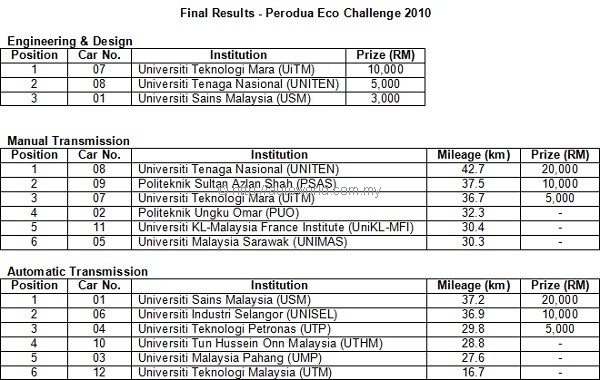 |
Editor’s Note: An earlier version of this article was published with the following statement: “further tweaking of valve timings meant that the effective compression ratio was brought down to the region of 13.0:1.” We have since been informed by Prof Gitano-Briggs that the correct figure should be 11.0:1. We have since amended the article to reflect the correct figure, any inconvenience caused is deeply regretted.



